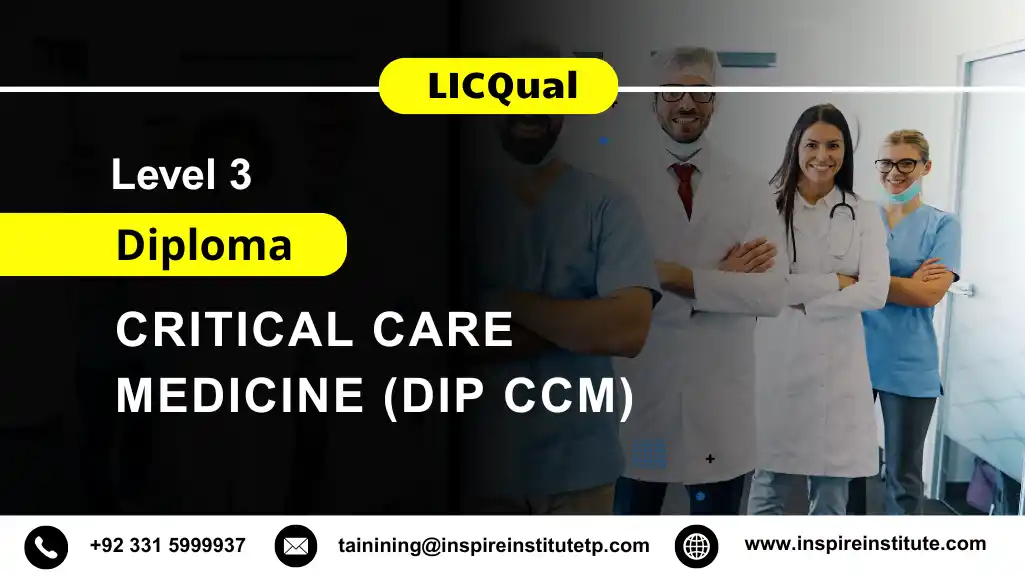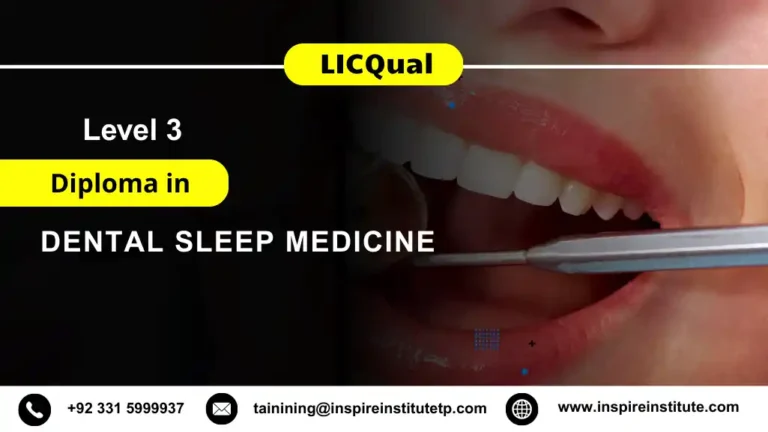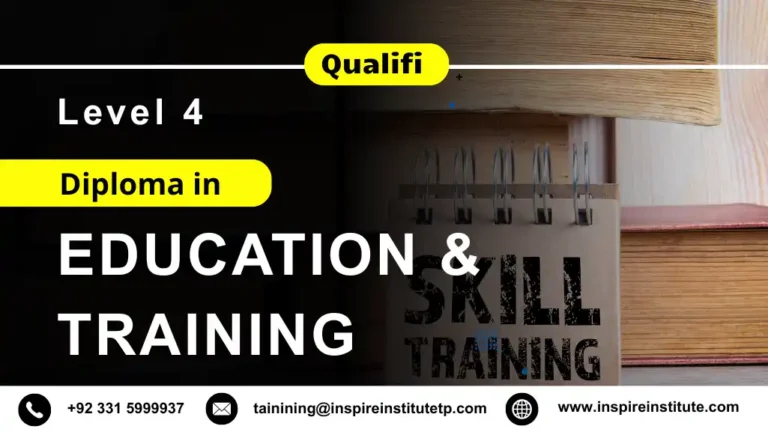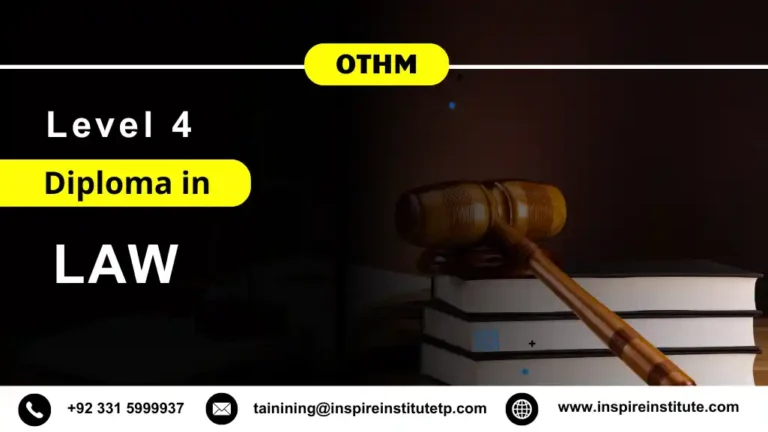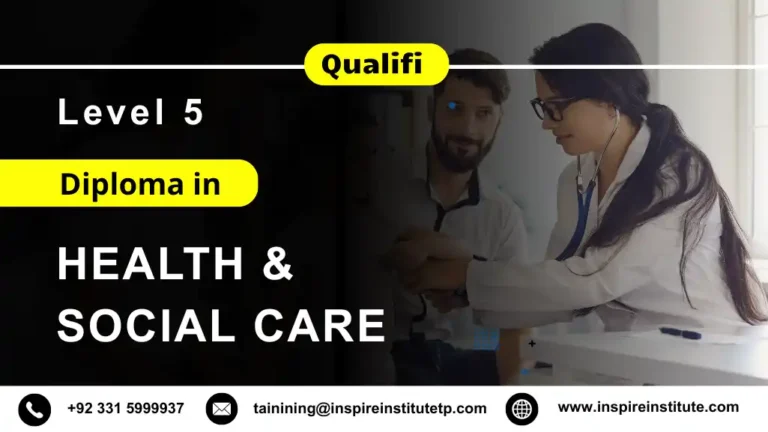LICQual Level 3 Diploma in Critical Care Medicine (Dip CCM)
The LICQual Level 3 Diploma in Critical Care Medicine (Dip CCM) is a UK-accredited qualification designed to prepare learners for the demanding field of critical and intensive care. Critical care medicine plays a vital role in managing life-threatening conditions, supporting patients in intensive care units (ICUs), and ensuring rapid medical intervention. This diploma is structured to provide both academic knowledge and practical skills, making it an ideal programme for healthcare professionals, nurses, and medical students aiming to build expertise in critical care.
The purpose of the LICQual Level 3 Diploma in Critical Care Medicine is to strengthen learners’ understanding of intensive care practices, emergency response, and advanced patient management. The course covers essential areas such as respiratory support, cardiovascular monitoring, trauma management, and evidence-based critical care protocols. It also focuses on ethical decision-making and multidisciplinary teamwork, both of which are central to delivering safe and effective care in ICU and emergency settings.
Learners undertaking the Dip CCM will develop practical competence in handling critical care equipment, monitoring vital signs, and supporting patients requiring advanced life support. The course emphasizes real-world applications, ensuring learners can apply theoretical principles in hospitals, ICUs, and emergency departments. This makes the programme highly relevant for those pursuing careers in acute medical care.
In addition to technical expertise, the diploma provides training in communication, empathy, and family-centered care. These skills are critical in managing sensitive situations, supporting patients’ families, and working effectively as part of a critical care team. Graduates will be equipped to handle high-pressure environments while maintaining professionalism and compassion.
The LICQual Level 3 Diploma in Critical Care Medicine (Dip CCM) also prepares learners for further advanced studies in intensive care, anesthesiology, or emergency medicine. With its UK accreditation, the qualification holds international recognition, opening global career opportunities in hospitals, clinics, and healthcare organizations.
By completing this diploma, learners not only strengthen their professional profile but also contribute meaningfully to healthcare systems. The combination of academic rigor, practical training, and ethical foundations makes the Dip CCM a transformative programme for individuals committed to advancing in critical care medicine. This qualification is more than just a course—it is a gateway to saving lives, supporting patients in their most vulnerable moments, and building a rewarding career in one of the most impactful areas of healthcare.
Why Choose this Qualification
The LICQual Level 3 Diploma in Critical Care Medicine (Dip CCM) is a specialized qualification designed to build essential knowledge and skills for those aspiring to work in critical and emergency healthcare. Critical care medicine is a vital field that focuses on the management of life-threatening conditions, intensive monitoring, and advanced patient support. Choosing this diploma not only strengthens your academic and professional foundation but also prepares you for a meaningful career where you can make a significant difference in saving lives and supporting patients in urgent care settings.
Key Reasons to Choose this Qualification
Comprehensive Understanding of Critical Care Medicine
- Gain an in-depth foundation in anatomy, physiology, and emergency response systems.
- Learn about the diagnosis and management of critical illnesses such as sepsis, trauma, and respiratory failure.
- Study essential practices in mechanical ventilation, fluid management, and infection control.
- Understand protocols for monitoring vital signs and managing multi-organ dysfunction.
Practical Skills for Real-World Healthcare
- Acquire hands-on knowledge to assess, stabilize, and monitor critically ill patients.
- Learn essential techniques for airway management, CPR, and life-saving interventions.
- Apply evidence-based practices in intensive care and emergency medicine.
- Develop problem-solving abilities in high-pressure clinical scenarios.
Career-Ready Qualification
- Enhance employability with recognized critical care and intensive medicine skills.
- Prepare for entry-level roles in ICUs, emergency departments, and urgent care units.
- Build a strong foundation for progressing into advanced nursing, paramedicine, or medical studies.
- Demonstrate professional competence through an accredited international qualification.
Strong Focus on Patient-Centered Care
- Develop communication skills for interacting with patients and families under stress.
- Learn to apply empathy and ethical practices in end-of-life and emergency care.
- Understand cultural and social considerations in patient support during critical illness.
- Gain confidence in providing emotional and professional support in intensive care environments.
Internationally Recognized Qualification
- Earn a qualification awarded by LICQual, known for its academic and professional standards.
- Open opportunities for global healthcare careers in ICUs and emergency medicine.
- Gain credibility and recognition among employers, peers, and medical organizations.
- Use this diploma as a pathway to advanced healthcare certifications and specializations.
Flexible and Structured Learning
- Benefit from a structured curriculum tailored to critical care medicine.
- Learn at your own pace with assignment-based assessments that reflect real-world challenges.
- Access study resources designed for healthcare professionals in emergency care.
- Balance study with professional or personal commitments.
Ethical and Professional Development
- Gain insights into professional codes of conduct in intensive care and emergency medicine.
- Understand patient rights, confidentiality, and ethical challenges in life-support decisions.
- Learn to make responsible decisions in high-stakes healthcare environments.
- Develop leadership qualities for growth in multidisciplinary healthcare teams.
Contribution to Society and Patient Survival
- Play a direct role in improving survival outcomes for critically ill patients.
- Support global initiatives in emergency preparedness and healthcare delivery.
- Build a career with both personal satisfaction and professional impact.
- Contribute to reducing mortality and improving quality of care in hospitals worldwide.
The LICQual Level 3 Diploma in Critical Care Medicine (Dip CCM) is more than just an academic qualification; it is a pathway to a highly impactful career in healthcare. With its combination of theoretical knowledge, practical expertise, ethical training, and international recognition, this diploma empowers learners to excel in the demanding field of critical care medicine. By choosing this qualification, you are investing not only in your professional growth but also in the advancement of emergency and intensive healthcare globally.
Course Overview
LICQual UK Awarding Body
Average Completion Time:
4-12 Months
Study Units: 6 Units
Evidence & Assignment Based
Mandatory Units
Who Should Take This Course
The LICQual Level 3 Diploma in Critical Care Medicine (Dip CCM) is a specialized qualification designed for individuals who are passionate about emergency and intensive healthcare, and who aspire to build a strong foundation in critical care medicine. Critical care is one of the most challenging and vital fields in healthcare, requiring technical expertise, quick decision-making, and compassionate patient support. This diploma equips learners with the skills and knowledge needed to work in critical care environments or progress to advanced studies, making it an excellent choice for a diverse range of learners.
This Course is Suitable For
Aspiring Critical Care Healthcare Professionals
- Build a solid understanding of anatomy, physiology, and emergency medical systems.
- Learn to manage acute illnesses, trauma cases, and life-threatening medical conditions.
- Develop skills in patient monitoring, stabilization, and intensive care management.
- Gain confidence in applying critical care practices in hospital and clinical settings.
Nursing and Healthcare Assistants
- Enhance knowledge in patient-centered care within emergency and ICU environments.
- Improve practical skills such as monitoring vital signs, handling ventilators, and administering first aid.
- Strengthen communication and teamwork abilities in high-pressure scenarios.
- Acquire internationally recognized skills to progress within healthcare professions.
Medical Students and Early Career Practitioners
- Use this diploma as a foundation for advanced critical care or general medical training.
- Gain early exposure to intensive care practices, professional ethics, and patient safety.
- Build expertise in evidence-based practices for emergency and critical care medicine.
- Develop problem-solving and decision-making skills for high-stakes medical situations.
Allied Health Professionals
- Strengthen knowledge to contribute effectively in multidisciplinary critical care teams.
- Learn essential practices in fluid management, infection control, and life support.
- Improve patient outcomes through applied principles of critical care medicine.
- Add value to existing qualifications by integrating specialized critical care skills.
Community Health Workers and Emergency Responders
- Acquire skills to support patients in emergency and urgent care settings.
- Learn to recognize and respond to early warning signs of critical conditions.
- Develop preventive and rapid-response healthcare practices.
- Enhance ability to deliver emergency support within community healthcare frameworks.
Individuals Seeking a Career Change into Healthcare
- Begin a career in healthcare with a globally recognized critical care qualification.
- Gain specialized knowledge in intensive and emergency medicine without requiring prior experience.
- Acquire transferable skills relevant to hospitals, clinics, and NGOs.
- Build confidence to progress into higher-level healthcare education.
International Learners Aiming for Global Healthcare Careers
- Earn an internationally recognized diploma that enhances employability worldwide.
- Gain skills aligned with global critical care and intensive medicine standards.
- Strengthen professional profiles for roles in hospitals, ICUs, and emergency departments abroad.
- Open pathways for advanced certifications and higher medical studies.
Volunteers and NGO Workers in Emergency and Health Relief Programs
- Develop expertise to contribute effectively to emergency medical missions and relief projects.
- Learn practical critical care skills essential in disaster response and humanitarian aid.
- Improve ability to deliver life-saving services in challenging healthcare environments.
- Gain confidence in supporting vulnerable communities during emergencies and crises.
The LICQual Level 3 Diploma in Critical Care Medicine (Dip CCM) is ideal for anyone committed to improving patient outcomes in urgent and life-threatening situations. Whether you are an aspiring healthcare professional, a current practitioner, or someone seeking to transition into critical care medicine, this qualification provides the foundation, expertise, and global recognition required to excel in this demanding field. By choosing this course, learners position themselves for both career growth and the opportunity to make a vital impact in saving lives.r advancement and the opportunity to make a meaningful contribution to the future of children’s healthcare.
Course Benefits
The LICQual Level 3 Diploma in Critical Care Medicine (Dip CCM) provides significant benefits for individuals seeking to build expertise in emergency, intensive, and acute healthcare practices. By combining essential theoretical knowledge with practical applications, this diploma equips learners to deliver life-saving care, manage critical medical conditions, and support patient recovery in high-pressure environments. Designed as a flexible, assignment-based programme, it ensures professional development while maintaining academic excellence and global healthcare relevance.
Key Benefits of the Course:
- Specialist Knowledge: Gain a strong foundation in critical care anatomy, physiology, and emergency medicine. Learners explore intensive care protocols, ventilator management, patient stabilization, fluid and electrolyte balance, and acute disease management. The course also emphasizes ethics, patient safety, and evidence-based practices, preparing learners to make informed decisions in high-stakes healthcare environments.
- Practical Application: Develop practical skills in monitoring critically ill patients, performing emergency assessments, and supporting medical interventions in ICU and emergency settings. Learners gain competence in handling life-threatening conditions, providing advanced first aid, and applying best practices in hospitals, clinics, and field operations. The programme ensures graduates can confidently apply theory to real-world critical care medicine.
- Recognised Qualification: Earn a UK-accredited diploma that validates advanced knowledge in critical care medicine and enhances professional credibility. This recognition ensures alignment with international standards in emergency and intensive healthcare, making the qualification valuable for careers in hospitals, ICUs, trauma centers, NGOs, and emergency response units worldwide.
- Flexible Learning Pathway: Benefit from an assignment-based study model that allows learners to balance professional or personal commitments while advancing academically. This flexible approach makes the LICQual Level 3 Diploma in Critical Care Medicine (Dip CCM) ideal for healthcare assistants, medical students, and career changers seeking a structured yet accessible programme in emergency and intensive care.
- Evidence-Based Training: Explore the latest international guidelines in critical care and intensive medicine, ensuring learners adopt safe, effective, and patient-centered approaches. Training emphasizes ventilator support, infection control, life support systems, and evidence-driven interventions that improve patient outcomes and support healthcare resilience.
- Career Development: Expand opportunities across hospitals, ICUs, emergency departments, trauma units, and humanitarian aid organizations. The diploma opens pathways into roles in critical care nursing support, emergency medical services, and allied healthcare, as well as progression to advanced studies in medicine, paramedics, and intensive care.
- Enhanced Emergency Healthcare Delivery: Contribute to improved patient survival and recovery rates by mastering life-saving skills, rapid assessments, and advanced healthcare interventions. Learners acquire the expertise to support multidisciplinary teams, respond to emergencies, and deliver critical healthcare services under pressure.
- Professional Growth: Strengthen clinical knowledge, critical decision-making, and communication skills essential for working with patients, families, and healthcare teams in high-stress situations. The course also builds professional values such as empathy, resilience, ethics, and collaboration, preparing learners to excel in the demanding field of critical care medicine.
The LICQual Level 3 Diploma in Critical Care Medicine (Dip CCM) equips learners with vital expertise, practical competence, and a UK-recognised qualification. It empowers healthcare professionals and aspiring practitioners to improve patient survival, contribute to emergency healthcare systems, and advance their careers in the challenging yet rewarding field of critical care medicine.
Eligibility Criteria
The LICQual Level 3 Diploma in Critical Care Medicine (Dip CCM) is a UK-accredited programme designed for aspiring healthcare professionals, nurses, emergency medical staff, and community health practitioners who wish to develop a strong foundation in intensive and emergency care medicine. This assignment-based qualification combines essential theoretical knowledge with practical applications, making it ideal for medical students, healthcare assistants, allied health professionals, and individuals seeking to specialize in critical care. By meeting the entry requirements, learners ensure they are fully prepared to succeed in the programme and apply their knowledge effectively in hospitals, intensive care units, emergency departments, and community healthcare settings.
Educational Background:
Applicants should hold a recognised healthcare or science-related qualification such as a diploma in healthcare practice, nursing, paramedic studies, or an equivalent qualification. Candidates with Level 2 or Level 3 qualifications in healthcare, medical sciences, or related fields may also be considered. Equivalent international qualifications will be reviewed on a case-by-case basis to ensure they meet the suitability standards for the programme.
Professional Experience:
While prior experience in critical care, emergency response, or general healthcare is beneficial, it is not mandatory. A minimum of one year of healthcare, clinical assistance, or community health experience is recommended. Applicants with exposure to patient monitoring, emergency handling, or intensive care support will find the course particularly valuable, though motivated individuals without direct experience are also encouraged to apply.
Age Requirement:
Learners must be at least 18 years of age at the time of enrolment. This ensures they possess the maturity, responsibility, and commitment required for training in critical care medicine. The age requirement guarantees candidates can engage with both the academic and practical aspects of the qualification effectively.
Language Proficiency:
Since the programme is delivered in English, learners should demonstrate strong reading, writing, and communication skills. A minimum IELTS score of 6.0 or an equivalent qualification is recommended for non-native English speakers. This ensures that learners can complete assignments, engage with course resources, and communicate effectively in professional healthcare settings.
Technical Requirements:
Applicants should have access to a computer or laptop with a stable internet connection. Basic IT skills are necessary to manage online learning platforms, conduct research, and submit assignments digitally. Familiarity with word processing software and digital study resources will ensure a smoother learning experience.
Required Documents:
Submission of a valid ID or passport, proof of educational qualifications, and evidence of any healthcare or related professional experience (if applicable) is required for registration. Applicants presenting international qualifications may be asked to provide additional documentation for verification.
The Qualification Process
LICQual Level 3 Diploma in Critical Care Medicine (Dip CCM) follows a structured pathway to ensure learners gain comprehensive knowledge, practical skills, and professional competence in community oral healthcare.
Step 1: Self-Assessment
Learners review the entry requirements to confirm eligibility. Candidates with a background in dentistry, oral health, or public health are encouraged to apply.
Step 2: Registration
Complete the registration process by submitting required documents such as proof of qualifications, a valid ID, and payment of enrollment fees.
Step 3: Induction
An induction session is conducted to:
- Verify learner eligibility and documentation.
- Introduce study materials, learning outcomes, and assessment procedures.
Step 4: Learning and Evidence Submission
Learners complete assignments, case studies, and practical exercises demonstrating competence in public health dentistry, community oral health assessment, preventive strategies, and program planning.
Step 5: Feedback and Revision
Assessors review submitted evidence and provide constructive feedback. Learners can revise and resubmit work to meet all required standards.
Step 6: Competence Validation
Final submissions are evaluated to confirm that learners have met all theoretical and practical learning outcomes.
Step 7: Internal Quality Assurance (IQA)
The IQA team reviews the assessment process to ensure accuracy, fairness, and compliance with international standards.
Step 8: External Verification (EQA)
External verifiers validate the authenticity and quality of learner achievements.
Step 9: Certification
Upon successful verification, learners are awarded LICQual Level 3 Diploma in Critical Care Medicine (Dip CCM), demonstrating advanced proficiency in community oral healthcare and preparing them for professional growth in dental public health, preventive dentistry, and healthcare policy.

